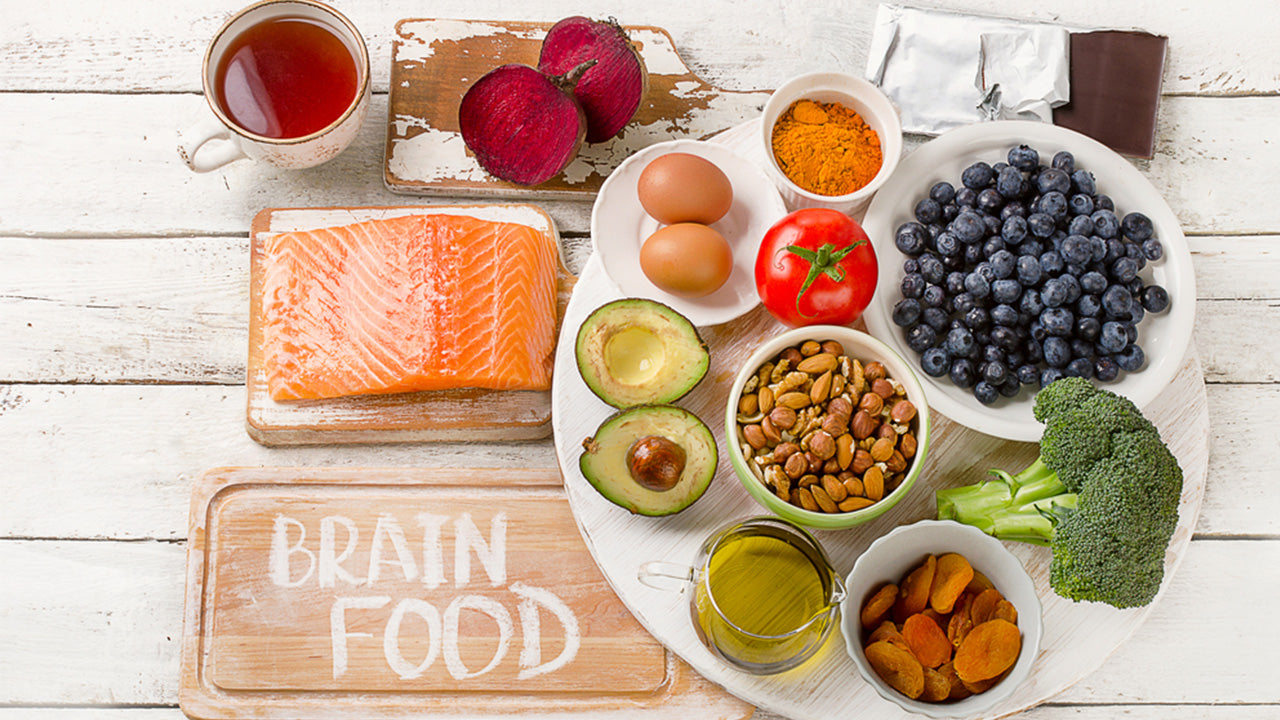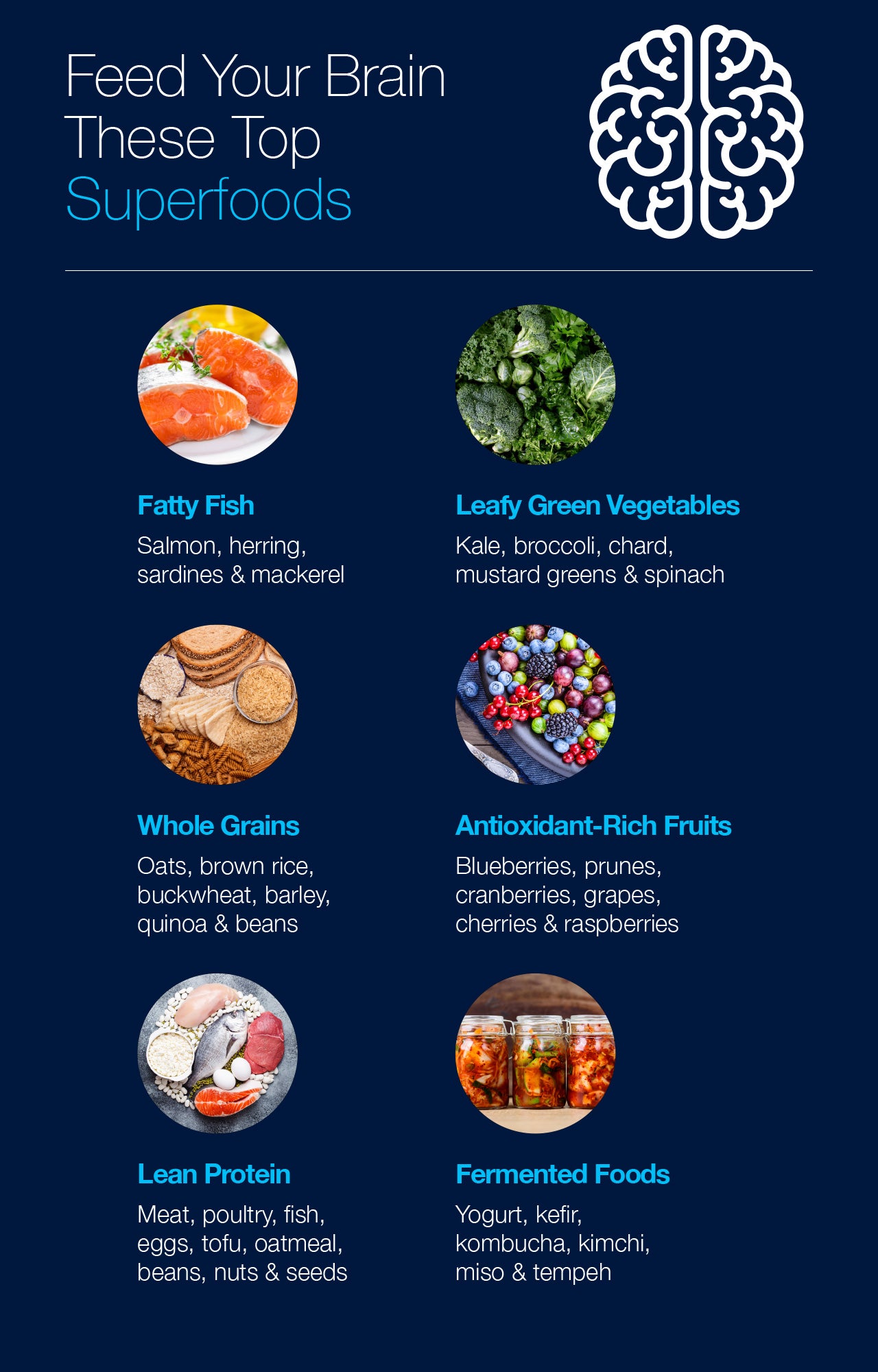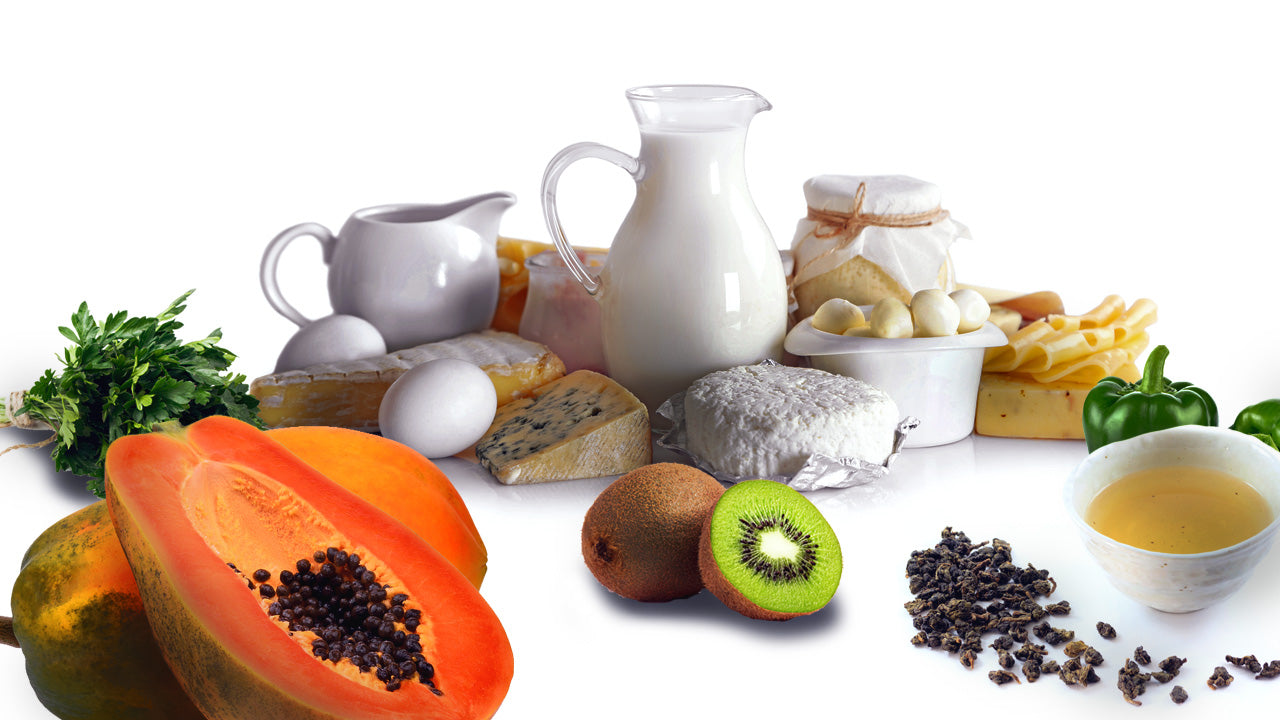Nutrition and Mental Health: How the Food You Eat Influences Mood and Emotion
 By: by Amino Science
By: by Amino Science

You’ve probably heard the expression “you are what you eat,” and you’re probably aware of the research linking diet and physical health. But have you ever thought about the effect diet has on mental health? In this article, we’re going to explore the emerging link between nutrition and mental health and uncover everything you need to know about the food-mood connection and its role in mental health.
The Link Between Nutrition and Mental Health
While many of us may associate learning new things or taking on a thought-provoking challenge with a boost to brain health, science is beginning to show us that one of the best ways to improve mental health might actually be through the stomach.
In fact, more and more research has found that healthy eating benefits the brain in the same way it benefits the body.
Yet, if you think about it, it makes sense that healthy food leads to a healthy brain, as the nutrients our bodies need to function come from the foods we eat.
The Food-Mood Connection
The food-mood connection—a cornerstone of the growing field of nutritional psychiatry that’s based on the premise that dietary patterns go a long way toward determining mental resilience—is becoming increasingly recognized as a key player in mental health.
What do we mean by this?
The brain communicates via the use of chemical messengers called neurotransmitters, which are produced with the help of amino acids—the building blocks of protein. Neurotransmitters perform a variety of functions, from regulating heart rate and immune system function to producing hormones and managing mood and emotions.
When sufficient levels of the neurotransmitter serotonin (90% of which is actually made in the digestive tract) are available, for example, we tend to feel calm and relaxed. But when our diet lacks an adequate supply of amino acids, levels of serotonin and certain other neurotransmitters, such as dopamine and endorphins, drop, and we begin to show signs of depression and anxiety.
Blood sugar levels can also influence mood. While a spike in blood sugar can cause a person to become short-tempered and anxious, a drop can leave one feeling lethargic and depressed. However, eating small meals throughout the day can keep blood sugar levels balanced and help reduce mood swings.
In addition, research suggests that a lack of certain vitamins and minerals as well as omega-3 fatty acids can alter emotions and lead to symptoms of mental health disorders. Likewise, food allergies, such as gluten intolerance, may cause both physical and mental health issues.
Unfortunately, over the past several decades, the quality of the typical Western diet has drastically declined, and many of us are lacking the nutrients we need. What’s more, an increasing number of studies has demonstrated a link between diets heavy in processed and fast foods and a rise in common mental disorders, including anxiety and major depression.
In other words, the research is telling us that poor nutrition is a risk factor in the development of mental illness.
In fact, mental health conditions like Alzheimer’s disease, schizophrenia, depressive disorder, and attention-deficit/hyperactivity disorder (ADHD) have all been linked to poor nutrition. Moreover, even after a mental health diagnosis has been made, poor diet can potentially worsen symptoms because the body continues to lack the nutrients it needs to support proper brain function.
Nutrients and Mental Health
As discussed, the foods we eat are intricately related to brain health. When we supply our bodies with the vitamins, minerals, amino acids, and healthy fats it needs, mood is more balanced and well-being is enhanced. But if our diet is filled with sugar, saturated fats, and processed foods, the ability of the brain to function at peak capacity suffers.
However, it’s within our power to supply our bodies with the nutrients they need to manage mood and build mental resilience. So let’s discuss some of these important nutrients now.
Amino Acids
As mentioned earlier, amino acids are the building blocks of protein—the building blocks of life—and are required for proper brain functioning. A deficiency in amino acids can lead to a host of negative side effects, including brain fog, depression, anxiety, fatigue, and difficulty focusing, but we can get the amino acids our brains need from both foods and amino acid supplements.
Some of the best food sources of amino acids are:
- Meat
- Poultry
- Fish
- Eggs
- Tofu
- Cottage cheese
- Quinoa
- Kamut
- Hemp
B Vitamins
Studies have shown that the B vitamins folic acid, thiamine, niacin, and vitamin B12 play an important role in mental health and can help alleviate symptoms of depression, cognitive impairment, and even schizophrenia. What’s more, B vitamins can help reduce stress, boost energy, and improve concentration.
Good dietary sources of B vitamins include:
- Meat
- Poultry
- Eggs
- Dairy products
- Whole grains
- Broccoli
- Sunflower seeds
- Broccoli
- Bananas
Iron
Almost two thirds of the iron found in the body is contained within hemoglobin, which is essential for supplying the cells and tissues with oxygen. Iron deficiency is also the most common nutritional deficiency in the world and is linked to a number of physical and mental health issues, including irritability, fatigue, loss of appetite, headaches, poor concentration, and restlessness. Low iron levels can also worsen symptoms of depression and anxiety.
Good food sources of iron are:
- Liver
- Shellfish
- Tofu
- Broccoli
- Kale
- Lima beans
- Beets
- Dark chocolate
Monounsaturated and Polyunsaturated Fats
The body requires an adequate supply of fat to perform a number of functions, from absorbing important fat-soluble vitamins like vitamin D to producing hormones and supporting the growth and maintenance of cells.
And in contrast to toxic trans fats, healthy fats like monounsaturated and polyunsaturated fats—which are easily recognized by their liquidity at room temperature—improve the health of both our bodies and our minds.
For example, a diet high in polyunsaturated fats like omega-3 fatty acids and monounsaturated fats like olive oil—a staple of the well-known Mediterranean diet, which is associated with a lower risk of depression—can enhance memory, balance mood, and strengthen problem-solving skills by supporting the production of brain neurotransmitters, including serotonin and dopamine.
In addition, the antioxidant and anti-inflammatory properties of both omega-3 fatty acids and olive oil have been found to assist in the process of detoxification that protects brain cells and aids in the prevention of Alzheimer’s disease.
Good dietary sources of healthy fats include:
- Grass-fed dairy products
- Sardines
- Salmon
- Eggs
- Hemp seeds
- Walnuts
- Flaxseeds
- Avocados
Zinc
Zinc helps regulate a number of biological processes and plays an important role in learning, memory, and mood. Zinc deficiency is associated with anxiety, depression, ADHD, seizures, and aggression. Zinc is also found in its highest concentration in the brain, especially the hippocampus, which is responsible for moving information from short- to long-term memory.
In addition, zinc boosts levels of the inhibitory neurotransmitter gamma-aminobutyric acid (GABA), which helps reduce stress and anxiety and induce a state of relaxation.
Good food sources of zinc include:
- Meat
- Shellfish
- Dairy products
- Eggs
- Whole grains
- Potatoes
- Dark chocolate
Magnesium
It’s estimated that magnesium plays a role in over 300 metabolic reactions, including those crucial for regulating the nervous system. And a deficiency in this important mineral is linked to a higher risk of depression, anxiety, insomnia, pain, and other mental health problems.
Magnesium is also known to block the entrance of stress hormones into the brain and to reduce symptoms of hyperactivity in people diagnosed with ADHD.
Good food sources of magnesium include:
- Tofu
- Spinach
- Molasses
- Beans
- Bananas
- Almonds
- Cashews
Foods That Improve Mental Health
By minimizing fried and processed foods, saturated fats, and refined sugar and emphasizing whole foods in the form of vegetables, whole grains, fruits, lean protein, and dairy products, you’ll be well on your way to enjoying the positive side of the food-mood connection.
What’s more, you’ll soon learn to recognize how certain foods affect your mood, so you can begin to eat more of what makes you feel good and less of what doesn’t.
So if you’re ready to start eating for better mental health, we’ve got some of the best foods to get you on the road to optimal brain health.
Fatty Fish
Fatty fish like mackerel, herring, salmon, and sardines can help support brain health with important nutrients like selenium, zinc, omega-3 fatty acids, and B vitamins.
Whole Grains
Most of the energy the body needs to function comes from carbohydrates, which are converted into glucose to provide fuel for tissues and organs. Glucose is especially important for the brain, which relies solely on glucose for energy—and the brain uses more energy than any other organ in the body.
However, simple carbohydrates—like those found in refined sugar and white flour—are broken down rapidly, causing blood sugar to quickly spike and just as quickly to drop.
By contrast, the complex carbohydrates found in foods like oats, brown rice, buckwheat, barley, quinoa, and beans are broken down slowly, releasing a steady, controlled stream of glucose into the blood—which keeps the body and brain functioning at peak capacity for a more extended period of time.
Lean Protein
Protein is the second most abundant substance in the body after water and plays a vital part in almost every biological process.
As discussed earlier, the body requires amino acids to create protein, and one of these amino acids—tryptophan—influences the production and release of serotonin. By including foods like meat, poultry, fish, eggs, tofu, oatmeal, beans, nuts, and seeds in your diet, you can help ensure your brain has the tryptophan it needs.
Leafy Green Vegetables
Eating leafy green vegetables like kale, broccoli, chard, mustard greens, and spinach helps improve memory and keep the brain sharp, for these nutritious greens are packed with vitamins, minerals, phytonutrients, and antioxidants—all of which safeguard brain function and mental health.
Antioxidant-Rich Fruits
Whether you prefer blueberries, prunes, cranberries, grapes, cherries, raspberries, or all of the above, these fruits have one thing in common: they’re loaded with free radical–scavenging antioxidants. Which means they work to fight the effects of inflammation and stress and even help ward off anxiety and depression and neurodegenerative diseases like Parkinson’s disease and Alzheimer’s. In addition, antioxidants have been shown to aid in improving memory and cognition.
Fermented Foods
Yogurt, kefir, kombucha, kimchi, miso, tempeh, and other fermented foods contain probiotics, which help keep the immune system functioning at optimal levels by preserving the gastrointestinal tract’s balance of good and bad bacteria.
And, as discussed earlier, the gut is the body’s second brain, so maintaining gut health helps ensure a healthy functioning brain as well.
It may have taken a while for science to catch up with what proponents of whole foods diets have been saying for years, but we’re finally seeing evidence that indicates that diet quality and brain health are intimately related and that the food we eat can have a significant impact on physical and mental well-being.
So if you’re feeling sluggish or could use a boost in your mood, why not give a high-quality diet rich in plenty of whole foods a try? It could be just what the doctor ordered.


Up to 25% off Amino
Shop NowTAGS: food
Join the Community
Comments (0)
Most Craveable Recipes




 833-264-6620
833-264-6620



















